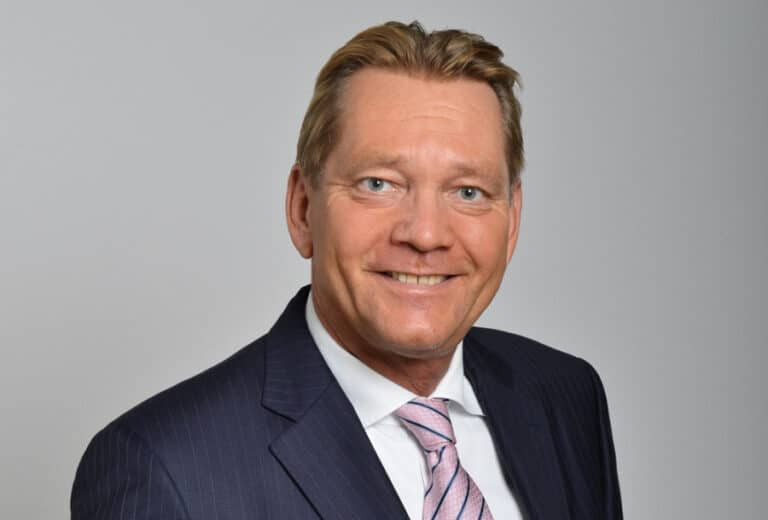When Swiss-based GSA ATC formed its subsidiary in Germany in October 1989, German re-unification was still a year in the future while the Berlin Wall had two more years to stand. Thirty years later, the Frankfurt-based GSA operation, headed from day one by Ingo Zimmer, is a multi-million euro operation.
Reflecting on this year’s 30th anniversary of ATC’s founding in Germany, Zimmer’s mind turns not only to how differently airfreight was conducted in the late-1980s but how the wider industry GSA industry in Germany has changed since then.
He says: “Of course, in 1989 there were no mobile telephones, no laptops, nor personal computers even. We relied on SITA telex machines. There was no CASS so we had to write out each shipment and bill individually.
“We made more sales calls as there was no email. We even did this in our lunch hour I remember.”
Another key difference, he notes, is the greater percentage of females working in airfreight.
He says: “Definitely in the late 1980s it was a man’s world. Now, that has changed as there are women in senior positions in much of the industry.”
West Germany
Next year will be the 30th anniversary of German re-unification in 1990. The world where Zimmer started up ATC’s operations in Germany was very different both politically and commercially.
He says: “In the late 1980s there was only a handful of GSAs in Germany. Small to medium airlines then worked as ‘embassies’, keeping total control of their passenger and cargo sales. There were no real global GSAs then.”
However, following the changes in Germany, this changed in the 1990s when airlines started to divest themselves of what they saw as non-core activities, such as selling cargo space.
He also notes that what was being carried by air has undergone a revolution in the three decades since he opened ATC for business in Germany. Then it was very much West German manufactured products, highly sought after in many export markets for their noted quality and engineering superiority.
Now, pharma and fresh fruit and vegetables are significant traffics that were not there in 1989.
He says: “Another thing that has progressed in 30 years is the hold cargo capacity of modern aircraft. A modern airplane can have the cargo capacity of a small freighter.”
With airlines increasingly divesting themselves of non-core activities, GSAs have become the fast-growing segment of the airfreight business, considers Zimmer.
At the same time, intra-European airfreight has almost disappeared, thanks to expansion of key road feeder service (RFS) networks.

One-man band
Zimmer, who was interviewed in ACW’s popular 60 Seconds with … slot in March 2018, recalls that the early days of ATC in Germany really was a solo effort.
He says: “When ATC opened up in Germany, I was alone. I did everything. I made sales calls, followed up with paperwork. I billed and invoiced. I even went to the cargo sheds to supervise loading and warehousing. I was alone until an ATC staff member came from Switzerland.”
As a manager, Zimmer is keen to promote loyalty from his staff. The pay back is some staff staying with ATC in Germany for a long time.
“I have more than two staff with more than 20 years with me,” he says.
Worst of times, best of times
In a span of 30 years, ATC Germany has naturally experienced the ebb and flow of business fortune. Like many in the industry, Zimmer recalls 2017 as being a “perfect year” for ATC’s business and the wider airfreight industry.
The whole air cargo industry had a very strong year in 2017 as ATC benefitted from increasing yields and strong demand, particularly in November and December where there was a lack of capacity with cargo being sold at express rates. Tonnages were also very good that year.
Growth out of Europe was around 15% with ATC seeing some 30% growth, a rate approaching double the market.
Zimmer considers that ATC was ahead of the market but benefitted like everybody else from increased yields, creating a “fantastic year”.
ATC’s good fortune did not stop there. Last year was just as strong as 2017 had been, he says. Growth may have slowed but Zimmer is still pleased with how business went last year.
Such positive outcomes go some way to removing memories of two years when things were not so rosy in Zimmer’s Frankfurt back garden.
He says: “The worst year has to have been the financial crisis of 2008. I remember going to the cargo sheds and they were empty. There were no trucks delivering or collecting. It was terrible. The second worst time was the ‘ash cloud’ of 2010. I remember walking my dog near the airport and there being no aircraft in the sky.”
Looking ahead, perhaps to the 40th anniversary in 2029, Zimmer is confident that ATC has a strong future. The company has a management team who are highly motivated as well as workforce who buys into the ATC message.
ATC’s ambition is to be the leading cargo GSSA in the world. Zimmer considers his route to achieving that ambition remains in maintaining the best relationships with client airlines and always providing the services they require.
He remains very proud of ATC Germany’s portfolio of airlines and displays a deep attachment to the company and its loyal staff.
The wider group sees turnover of €350 million in 22 countries with 42 offices and more than 200 people working within ATC worldwide. Its global portfolio consists of leading cargo airlines like ANA, Avianca, Etihad, Ethiopian, Qatar, United and Turkish.
Looking back at the early days, as the rest of Germany changed beyond recognition with the fall of the Berlin Wall and the re-unification, Zimmer remembers a time when he was the sole ATC employee in Germany.
“This company was my baby,” he says. “It still is my baby.”


